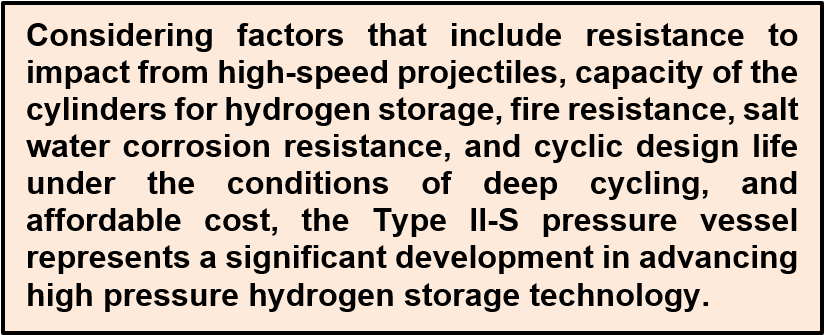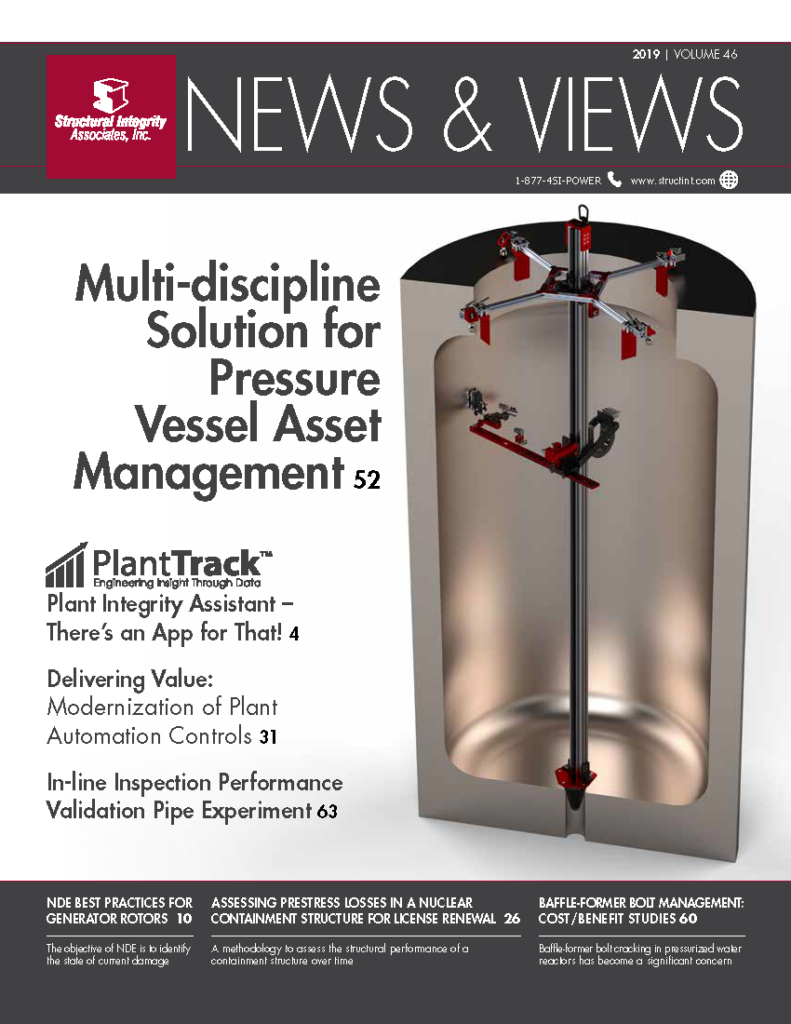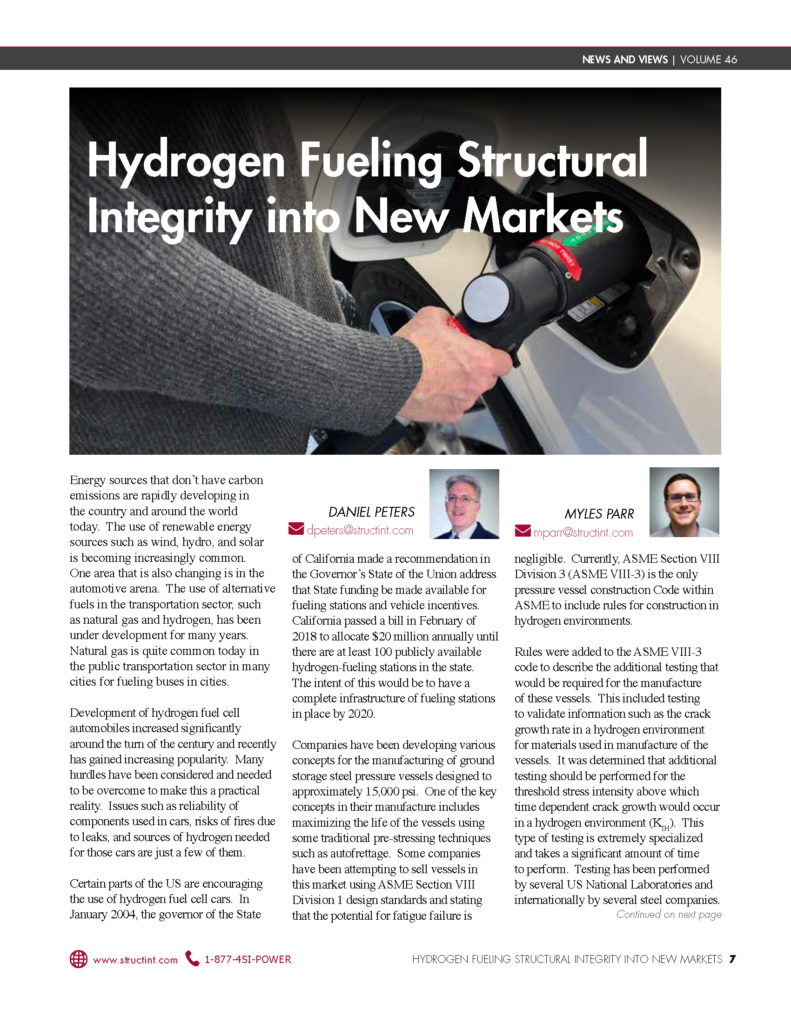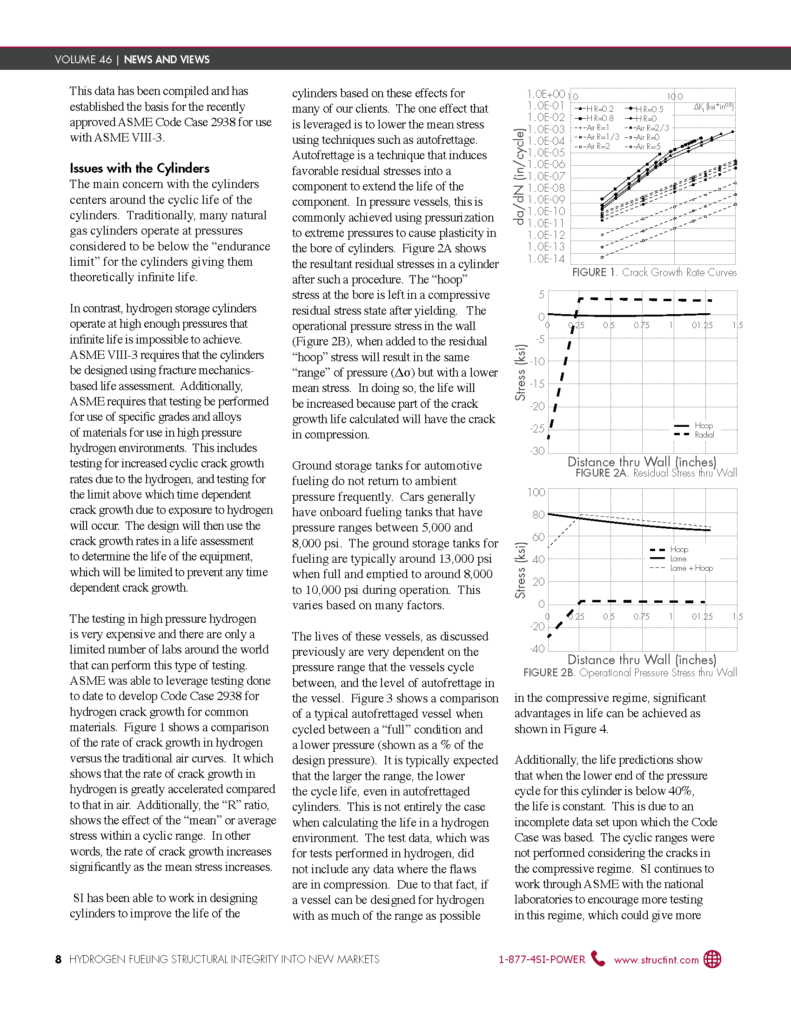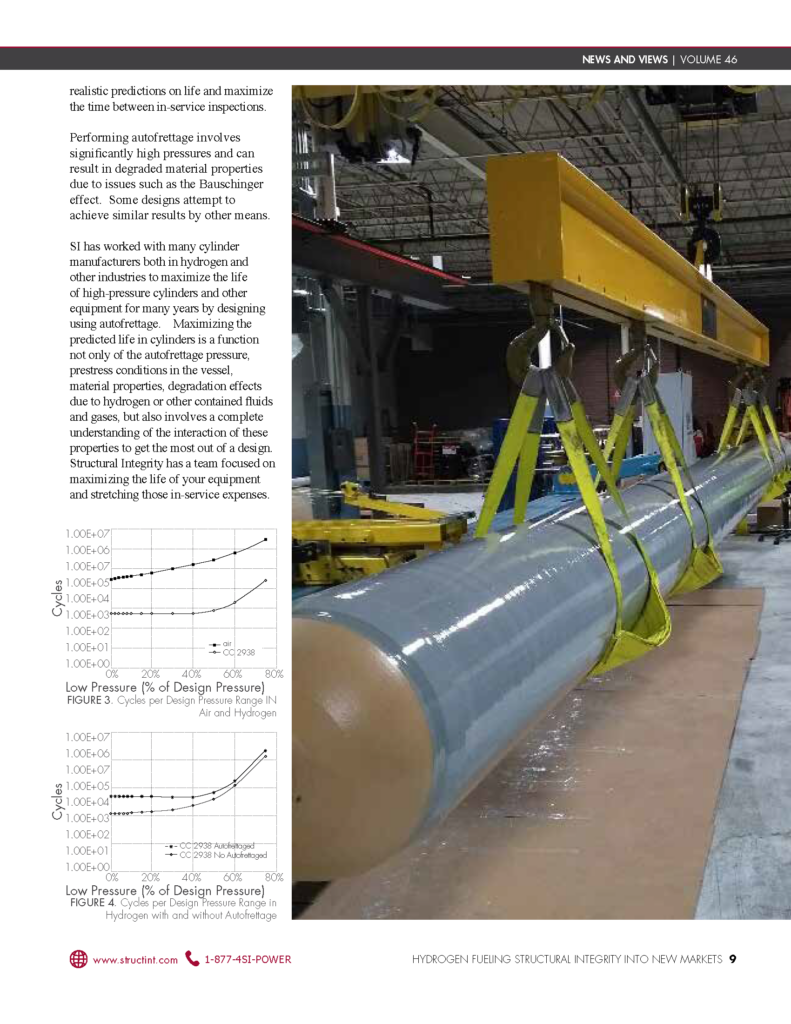Bristol, Va. — August 18, 2014 — On August 13, 2014, the U.S. Department of Energy (DOE) formally announced two grants for hydrogen storage technology development; WireTough Cylinders LLC of Bristol, Virginia was selected by DOE as the primary investigator for a $2 million project grant to build low cost, high pressure hydrogen storage vessels using its patent pending steel wire over-wrap process. The second project grant for hydrogen storage was awarded to the Oak Ridge National Laboratory, which incorporated WireTough’s technology into its proposal. These two projects were part of the Energy Department’s $20 million, grant program designed to find companies to research and develop affordable, efficient fuel cell and hydrogen technologies. “We knew we were a perfect fit to produce these tanks and we’re proud the federal government recognizes this as well,” stated Amit Prakash, the President of WireTough., “It is a huge endorsement of our technology. It’s not just a big deal for us, but for our region.”
The Energy Department was seeking cutting edge technologies to provide better storage for future uses of hydrogen as a fuel. WireTough’s goal is to develop a 30 foot tank with a large storage volume of 700 gallons (2,600 liters) at high pressures (12,700 psi). The project result will be a cost-effective solution to store hydrogen, allowing the hydrogen vehicle fuel to ultimately be sold at a target cost of $4 per gasoline gallon equivalents (GGE, 1 GGE=2.6 Kg of CNG or 1 Kg of Hydrogen).
Additionally, WireTough will be introducing their latest technology advancement: a line of ground storage solutions for compressed natural gas (CNG) filling stations with a capacity of 100 to 300 gasoline gallon equivalents (GGE). CNG fill stations of this size allow owners of fleet vehicles (delivery trucks, buses, garbage trucks, etc.) to quickly refuel when they return to their terminal nightly. These ground storage units will use the company’s patent pending wire reinforcement technology to create storage tanks approved by the American Society of Mechanical Engineers (ASME) that will store CNG at 5000 psi. WireTough’s ground storage solutions are expected to cost 30% to 50% less than currently available storage tanks and the technology used will provide extremely strong tanks, using far less steel.
Currently, WireTough Cylinders makes a line of CNG vehicle tanks that are stronger and lighter in weight than solid steel (Type I) tanks and priced competitively. WireTough currently produces tanks that range in size from 57 liter water volume(5 gge) to 260 liter (22 gge). WireTough’s tank technology combines the high strength and ductility of the ultra-tensile wire in combination with a ductile steel liner produce a safe, damage tolerant vessel at a competitive price.
About WireTough Cylinders LLC
WireTough began as Polywire Tough Composites, Ltd., established in 2003, from a team of four engineers, who as a group were responsible for over 40 US patents. In 2010, Wiretough Cylinders was officially incorporated. Their extensive knowledge in pressure vessels, high strength steel, machine design, composites, engineering mechanics and physics, has made their products superior in both cost and function. WireTough is known for its light weight, economical, wire reinforced pressure vessels for gas storage. In 2011 the company successfully received US DOT FMVSS-304 and ANSI-NGV-2-2007 for its Type II CNG cylinders. The company is the only producer of steel body CNG cylinders in the USA. ###
If you would like more information or to schedule an interview, please contact Doug Deeken at (330) 687-8674 or (330) 658-9045, or e-mail at [email protected].
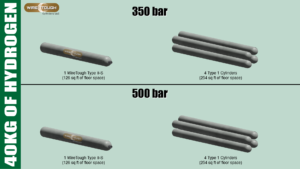
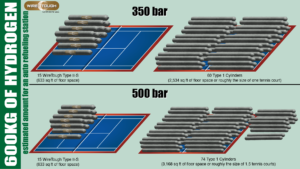

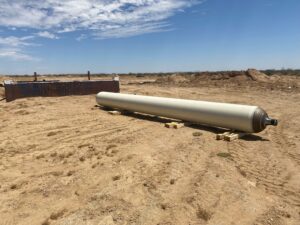
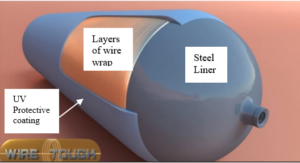 WireTough’s technology is patented and proprietary. The high ductility of steel wires (>15%) in the wrap allows the cylinders to be pressurized to greater than two-times their maximum allowable pressure during the manufacturing process. This over-pressurization process is called “autofrettage” and it causes plastic flow in the liner and locks high compressive stresses in the entire cross-section of the liner that enhances the tank’s fatigue cyclic life during service. This is a key issue in storing corrosive gases like hydrogen.
WireTough’s technology is patented and proprietary. The high ductility of steel wires (>15%) in the wrap allows the cylinders to be pressurized to greater than two-times their maximum allowable pressure during the manufacturing process. This over-pressurization process is called “autofrettage” and it causes plastic flow in the liner and locks high compressive stresses in the entire cross-section of the liner that enhances the tank’s fatigue cyclic life during service. This is a key issue in storing corrosive gases like hydrogen.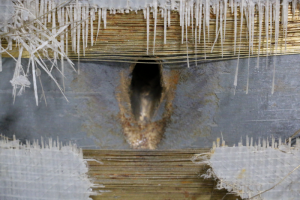
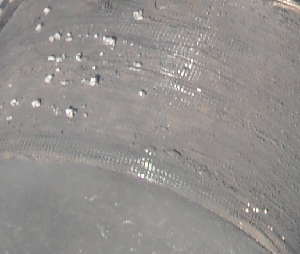
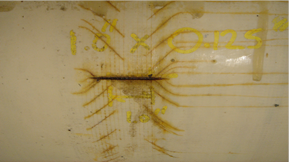

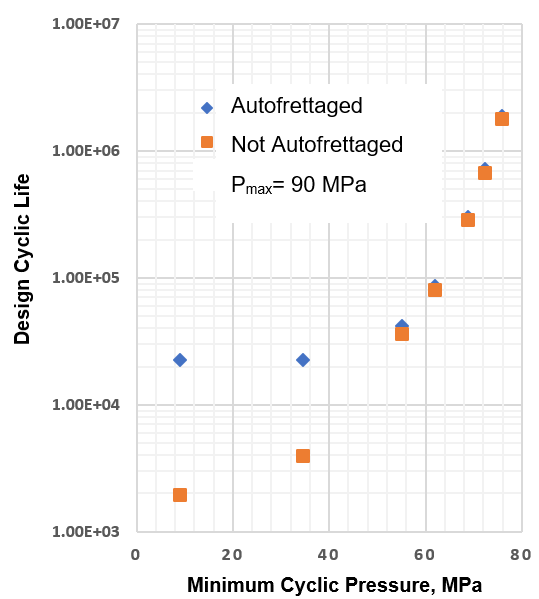 Autofrettage plays an important role in boosting the design life of hydrogen storage vessels during deep pressure cycling. Some cylinders in a cascade will experience deep cycles in which the pressures will fluctuate between the maximum operating pressure, Pmax, and a minimum pressure that can be as low as 5 to 10% of Pmax. For Pmax of 90 MPa, the life of autofrettaged cylinders are estimated to be several times higher than cylinders that are not autofrettaged.
Autofrettage plays an important role in boosting the design life of hydrogen storage vessels during deep pressure cycling. Some cylinders in a cascade will experience deep cycles in which the pressures will fluctuate between the maximum operating pressure, Pmax, and a minimum pressure that can be as low as 5 to 10% of Pmax. For Pmax of 90 MPa, the life of autofrettaged cylinders are estimated to be several times higher than cylinders that are not autofrettaged. 